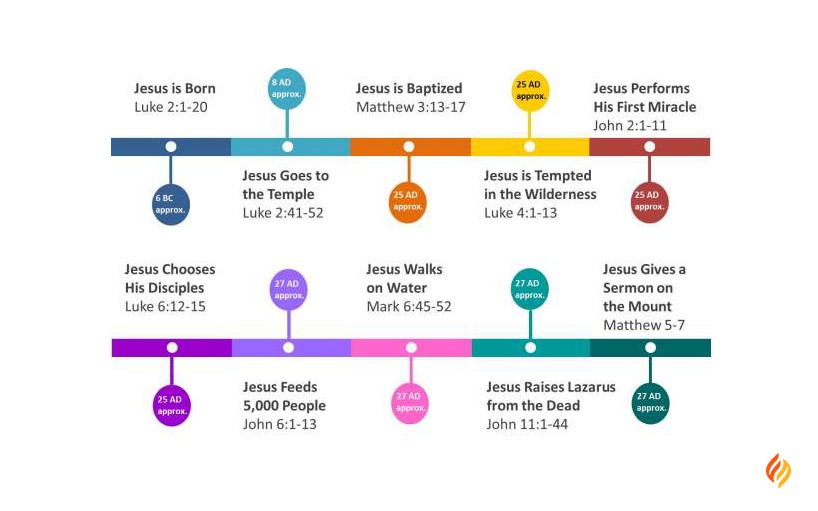How Old Is God? This is a question pondered by people across generations and belief systems. The straightforward answer, rooted in theological understanding, is that God doesn’t have an age. This isn’t because we don’t know it, but because the concept of age simply doesn’t apply to the Divine. God is understood to be eternal, existing outside the constraints of time as we know it. This timeless nature is a core attribute of God, distinguishing Him from all of creation. He is not bound by the linear progression of past, present, and future; rather, He encompasses all of time simultaneously.
The Eternality of God: Everlasting and Without End
The term “eternal” itself signifies “everlasting, without beginning or end.” This concept is beautifully captured in Psalm 90:2, a verse that speaks directly to God’s timeless existence:
“Before the mountains were born or you brought forth the earth and the world, from everlasting to everlasting you are God.” (Psalm 90:2, NIV)
This verse highlights that before the very foundations of our world were laid, before mountains rose or the earth took shape, God already was. His existence isn’t measured by the lifespan of the universe or any earthly calendar. He is “from everlasting to everlasting,” emphasizing a continuous, unbroken existence that stretches infinitely in both directions of time.
God’s Existence Before Creation: Timelessness Defined
The opening verses of the Bible, “In the beginning God created the heavens and the earth” (Genesis 1:1), are often examined when considering God’s origins. However, it’s crucial to understand that Genesis 1:1 marks the beginning of creation, not the beginning of God. God existed before this beginning. He was present at the very inception of our universe, but His existence predates even that momentous moment.
The Bible consistently affirms God’s pre-existence and timeless nature. There was never a point in time when God came into being, nor will there ever be a point when He ceases to be. He simply is.
“From everlasting I was established, from the beginning, before earth began.” (Proverbs 8:23, NASB)
“Father, I want those you have given me to be with me where I am, and to see my glory, the glory you have given me because you loved me before the creation of the world.” (John 17:24, NIV)
These verses reinforce the idea that God’s existence is not contingent upon creation or time itself. He is the uncreated Creator, existing in a realm beyond the temporal boundaries that define our reality.
“I AM WHO I AM”: God in the Eternal Present
God’s self-revelation to Moses as “I AM WHO I AM” (Exodus 3:14) is profoundly significant in understanding His timeless nature. When God declares “I AM,” He is not referring to a past or future state, but to His eternal present. He is not “I WAS” or “I WILL BE” in a limited sense; He is eternally.
God said to Moses, “I AM WHO I AM. This is what you are to say to the Israelites: ‘I AM has sent me to you.’” (Exodus 3:14, NIV)
This name, “I AM,” encapsulates God’s self-sufficient and unchanging being. While humans experience time as a linear progression, God’s existence is not confined to this sequential flow. He transcends time, existing in a perpetual “now.”
The Unchanging Nature of God: Beyond the Reach of Time
In our human experience, everything is subject to aging, change, and decay over time. We are accustomed to the idea of things becoming old or outdated. However, this concept is inapplicable to God. He is not susceptible to the effects of time. He remains eternally consistent, unchanging in His nature and character. Unlike technology that requires updates and becomes obsolete, God is eternally relevant and never needs revision.
This timelessness is further illustrated in 2 Peter 3:8, which offers a different perspective on time in relation to God:
But do not forget this one thing, dear friends: With the Lord a day is like a thousand years, and a thousand years are like a day. (2 Peter 3:8, NIV)
This verse isn’t meant to be a literal calculation of God’s time, but rather a metaphorical expression highlighting the vast difference between God’s perception of time and our human experience. For God, time is not a limiting factor; He operates on a scale that dwarfs our temporal understanding.
The concept of resurrection, exemplified by Jesus Christ, also offers insight into a state beyond the limitations of time and aging.
On the evening of that first day of the week, when the disciples were together, with the doors locked for fear of the Jewish leaders, Jesus came and stood among them and said, “Peace be with you!” (John 20:19, NIV)
This passage describes Jesus appearing to His disciples despite locked doors, signifying a transformed body no longer bound by physical constraints. This foreshadows the eternal bodies promised to believers, a state of being beyond the decay and limitations of earthly time. Hebrews 9:28 speaks to this future salvation:
so Christ was sacrificed once to take away the sins of many; and he will appear a second time, not to bear sin, but to bring salvation to those who are waiting for him. (Hebrews 9:28, NIV)
This “salvation” in the context of the second coming includes the redemption of our physical bodies, transforming them into a state of eternal life, free from the ravages of time.
The Three Dimensions of Salvation
Christian theology often describes salvation in three phases:
- Spirit is saved: This refers to the immediate spiritual regeneration and reconciliation with God upon believing in Jesus Christ.
- Soul is being saved: This is an ongoing process of sanctification, where our minds, wills, and emotions are being transformed to become more Christ-like.
- Body will be saved: This is the future resurrection and glorification of our physical bodies, receiving an eternal, imperishable form.
Explore the Depth of God’s Forgiveness: Does God Forgive All Sins?
The Life of Jesus: A Temporal Contrast
While God is eternal and timeless, Jesus Christ, in His earthly incarnation, lived within the confines of time as a human being. Examining key events in Jesus’ life provides a contrasting perspective to the timeless nature of God the Father.
Early Threats to Jesus’ Life
From the very beginning of Jesus’ life, there were attempts to end it. King Herod, fearing a rival king, ordered the massacre of infant boys in Bethlehem (Matthew 2). This highlights Jesus’ vulnerability within the temporal realm, even as the Son of God.
Jesus Lost in the Temple at Age Twelve
Luke’s Gospel recounts an event when Jesus, at the age of twelve, remained in the temple in Jerusalem without His parents’ knowledge. When found after three days, He responded to their concern with the profound statement: “Didn’t you know I had to be in my Father’s house?” (Luke 2:49, NIV). This episode reveals Jesus’ early awareness of His divine mission and His connection to God, even within His human development.
Jesus’ Baptism at Age Thirty
At approximately thirty years of age, Jesus was baptized by John the Baptist in the Jordan River. This event marked the official beginning of His public ministry. During the baptism, God spoke from heaven, declaring, “This is my Son, whom I love; with him I am well pleased.” (Matthew 3:17, NIV). This divine affirmation publicly acknowledged Jesus’ identity and mission at the start of His ministry.
 Timeline of key events in the life of Jesus Christ, highlighting his birth, ministry, death and resurrection.
Timeline of key events in the life of Jesus Christ, highlighting his birth, ministry, death and resurrection.
Stepping into Ministry Around Thirty
The Bible specifies that Jesus was “about thirty years old” when He commenced His public ministry (Luke 3:23). This age was significant in Jewish culture, often associated with maturity and readiness for public service.
The Age of Jesus at His Death
The Bible does not explicitly state Jesus’ age at the time of His death. However, historical and biblical context suggests He died in His early thirties. Life expectancy in that era was considerably lower than today, averaging around 35 years. Therefore, whether Jesus was 30, 33, or 34 at His crucifixion, He would have been considered a young man in His prime. Scholarly estimates generally place Jesus’ death between the ages of 30 and 33.
Re-Examining “How Old Is God?”
So, returning to the initial question, “How old is God?” The Scriptures consistently affirm that the eternal God is without beginning or end. He predates all creation and exists outside the constraints of time. Described as the Alpha and Omega, the beginning and the end, God’s existence is not measured in years or centuries.
Alpha (Α or α) and omega (Ω or ω) are the first and last letters of the Greek alphabet, symbolizing completeness and encompassing all of existence.
Our human experience of life is linear, with events unfolding sequentially in time. We are born, we age, and we die within the timeline of our existence. However, God is not bound by this linear progression. He is not a created being who came into existence at some point in the past. Instead, He is eternally present. He is the King eternal, existing outside of time’s dominion. For God, past, present, and future are not separate compartments but are simultaneously present in His eternal now.
Conclusion: Embracing the Timeless God
While we cannot assign an age to God, this understanding of His timeless nature should not create distance but rather inspire awe and reverence. God’s eternality underscores His immutability, His faithfulness, and His enduring presence in our lives. He is not a distant, aged deity, but a living God intimately involved in the world and in our individual journeys. His love is timeless, His promises are eternal, and His presence is constant, regardless of the passage of time. Though we may not fully grasp the concept of timelessness, we can trust in the God who exists beyond time, knowing that His understanding and power transcend our temporal limitations.
Do you have further questions about God or faith? We invite you to connect with Flame of Fire Church in Sacramento.
To deepen your understanding of God and cultivate your relationship with Him, consider enrolling in KD College, a Bible College in Sacramento, CA.
Interested in exploring spiritual gifts? Read our blog post: “What is the Five Fold Ministry?”
Scriptural References to God’s Eternal Nature
Now to the King eternal, immortal, invisible, the only God, be honor and glory for ever and ever. Amen. (1 Timothy 1:17, NIV)
Before the mountains were brought forth, or ever you had formed the earth and the world, from everlasting to everlasting you are God. (Psalm 90:2, ESV)
Your throne is established from of old; you are from everlasting. (Psalm 93:2, ESV)
and swore by him who lives for ever and ever, who created the heavens and all that is in them, the earth and all that is in it, and the sea and all that is in it, and said, “There will be no more delay!” (Revelation 10:6, NIV)
The eternal God is your refuge, and underneath are the everlasting arms. He will drive out your enemy before you and will say, ‘Destroy him!’ (Deuteronomy 33:27, NIV)
“I am the Alpha and the Omega—the beginning and the end,” says the Lord God, “who is, and who was, and who is to come, the Almighty.” (Revelation 1:8, NIV)
